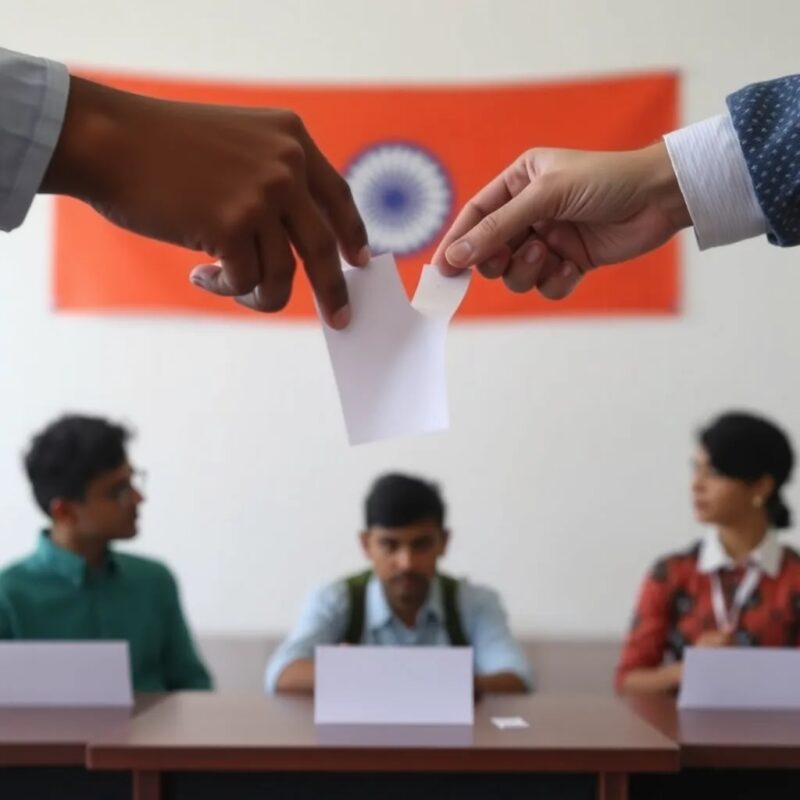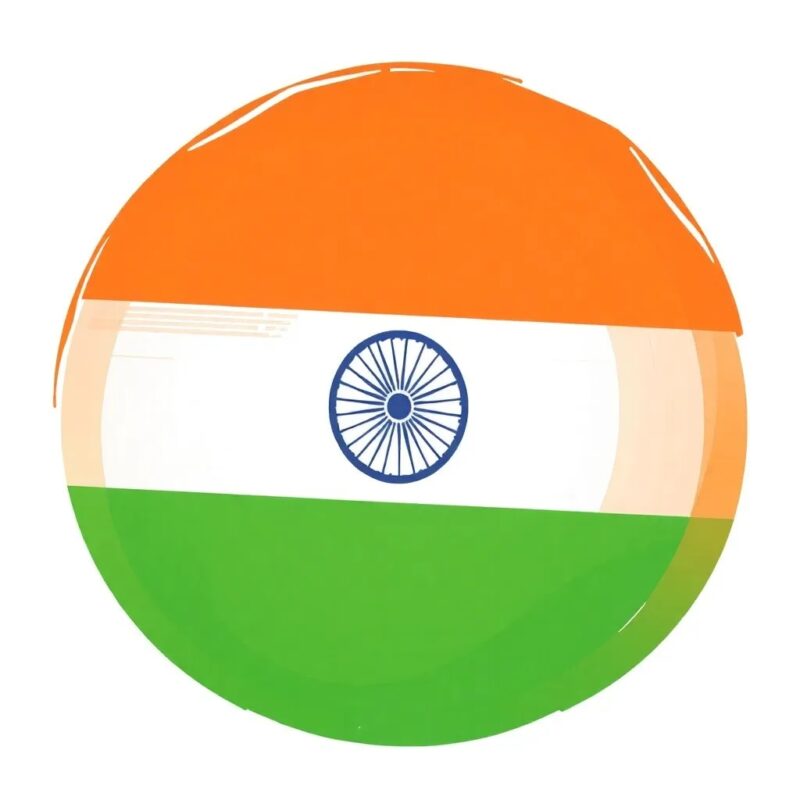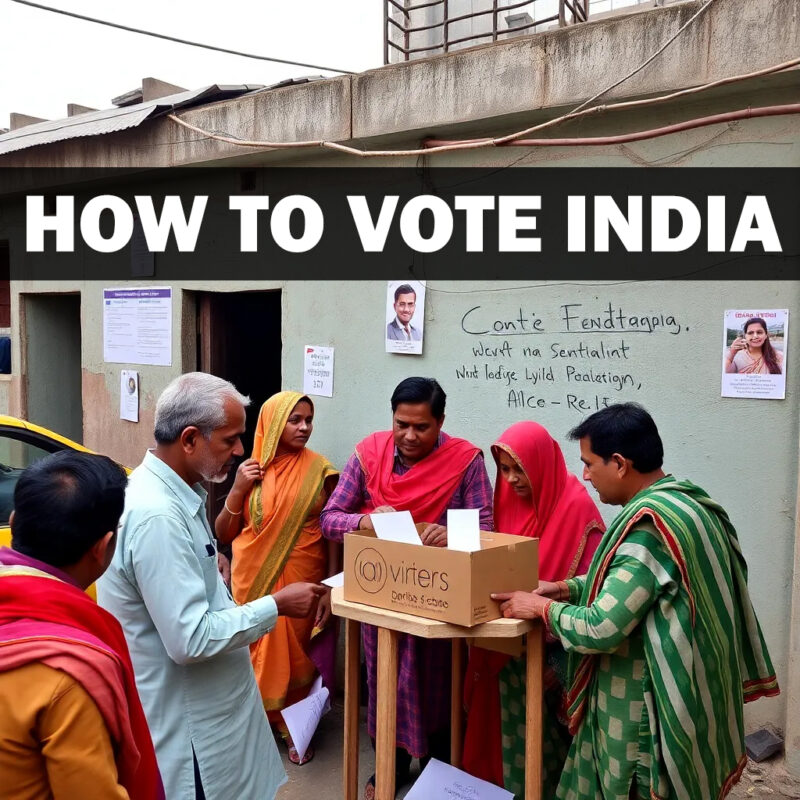Introduction to Voting in India
Voting is a fundamental right in a democracy, and in India, it plays a crucial role in shaping the nation’s future. It’s not just a privilege but a responsibility that allows citizens to express their opinions and influence government policies. Understanding how to vote India is essential for active participation in the democratic process.
The voting process in India is well-structured, ensuring that every eligible citizen can exercise their right. This guide aims to demystify the voting process, making it accessible for everyone, whether you’re a first-time voter or someone looking to refresh their knowledge.
Importance of Voting

Voting is vital for several reasons. It allows citizens to voice their opinions on issues that affect their lives and communities. Through voting, individuals can support candidates and policies that align with their values and aspirations. Moreover, participating in elections fosters a sense of civic duty and encourages accountability among elected officials.
Overview of the Voting Process

The voting process in India involves several steps, from registering to vote to casting your ballot on election day. It includes understanding the different types of elections, the voting methods available, and the specific requirements for participation. By familiarizing yourself with these elements, you can ensure that your voice is heard during elections.
2. Eligibility Criteria for Voters

Before you can vote in India, you need to meet certain eligibility criteria. These criteria are designed to ensure that all voters have a fair opportunity to participate in the electoral process.
– Age Requirements
To vote in India, you must be at least 18 years old on or before election day. This age requirement aligns with the global standard for voting eligibility, emphasizing the importance of youth participation in democracy.
– Citizenship and Residency
Only Indian citizens can register to vote. Additionally, you must be a resident of the area where you intend to vote. This ensures that voters have a stake in the local issues and candidates. If you’re a non-resident Indian (NRI), there are specific provisions for you to participate in elections, which we’ll explore later.
3. How to Register to Vote
Registering to vote is a crucial step in the electoral process. In India, there are two primary methods for voter registration: online and offline.
– Online Registration Process
The Election Commission of India (ECI) provides an online portal for voter registration. To register online, you need to visit the ECI website, fill out the required forms, and submit the necessary documents. This process is user-friendly and designed to make registration accessible to everyone.
– Offline Registration Process
If you prefer to register offline, you can do so by visiting your local Electoral Registration Office. Here, you can collect the application form, fill it out, and submit it along with the required documents. This method is particularly useful for those who lack access to the internet or prefer a more personalized experience.
4. Understanding the Voting Process

Voting in India involves various types of elections and voting methods. Understanding these elements is essential for effective participation.
– Types of Elections in India
India has several types of elections, including Lok Sabha, Vidhan Sabha, and local body elections. Each type of election has its unique characteristics, and understanding these differences is vital for informed participation.
– Voting Methods Available
In India, there are multiple voting methods available, including electronic voting machines (EVMs) and postal ballots. EVMs are the most commonly used method, while postal ballots are designed for specific categories of voters, such as service voters and NRIs.
5. Preparing for Election Day
Election day is a critical moment in the voting process. To ensure a smooth experience, it’s essential to prepare beforehand.
– What to Bring
On election day, you’ll need to bring specific documents, such as your voter ID card, passport, or other approved identification. Make sure to check the ECI website for the most up-to-date information on required documents.
– How to Find Your Polling Station
Finding your polling station is crucial on election day. You can locate your polling station by checking the ECI website, contacting your local electoral office, or asking your neighbors.
– Resources for Voters
The ECI and other organizations provide various resources for voters, including voter education programs, helplines, and online portals. These resources are designed to empower citizens and ensure that they can exercise their right to vote effectively.
7. Conclusion
Voting is a fundamental right in India, and understanding how to vote india is essential for active participation in the democratic process. By following the steps outlined in this guide, you can ensure that your voice is heard during elections. Remember, every vote counts, and your participation can shape the future of India.
Frequently Asked Questions about Voting in India
Voting is an essential part of democracy, and many individuals often have questions about the process. Here are some frequently asked questions that can help clarify any doubts you might have about voting in India.
1. What is the minimum age to vote in India?
To vote in India, you must be at least 18 years old on or before the election day. This age requirement is in line with the global standard for voting eligibility, allowing young adults to participate in shaping their country’s future.
2. How do I check if I am registered to vote?
You can check your voter registration status on the Election Commission of India’s official website. Simply visit the site, navigate to the voter services section, and enter the required details, such as your state and name, to verify your registration status.
3. What documents do I need to register to vote?
To register as a voter in India, you typically need to provide proof of identity and address. Acceptable documents include a passport, driver’s license, Aadhaar card, or any government-issued ID. It’s essential to check the latest guidelines from the Election Commission for any updates on required documents.
4. What should I do if my name is not on the voter list?
If your name is not on the voter list, you can apply for inclusion in the electoral roll. This can be done online through the Election Commission’s website or offline at your local Electoral Registration Office. Ensure you have the necessary documents ready for submission.
5. Can I vote if I am living abroad?
Yes, Indian citizens living abroad can vote in elections. However, they need to register as overseas voters and apply for a postal ballot. The process may vary, so it’s advisable to check the Election Commission’s guidelines for NRIs to ensure you meet all requirements.
6. What is the process for voting on election day?
On election day, you need to go to your designated polling station, bring an acceptable form of identification, and show your voter ID. After verification, you will receive a ballot paper or access to an electronic voting machine (EVM) to cast your vote.
7. What if I cannot vote in person on election day?
If you are unable to vote in person on election day, you may be eligible to vote via a postal ballot if you are a service voter or an overseas voter. Additionally, you can check with local election authorities for any provisions for absentee voting.
8. What are the types of elections held in India?
India conducts several types of elections, including Lok Sabha elections (for the lower house of Parliament), Vidhan Sabha elections (for state assemblies), and local body elections (for municipalities and panchayats). Each type has its own significance and procedures.
9. How can I find my polling station?
You can find your polling station by visiting the Election Commission of India’s website and entering your details in the designated section. Alternatively, you can contact your local electoral office for assistance.
10. What should I do if I face issues at the polling station?
If you encounter any problems at the polling station, such as issues with your voter ID or EVM malfunction, you should immediately inform the election officials present. They are trained to address such issues and ensure that the voting process runs smoothly.
11. Is there a way to vote electronically in India?
Currently, India primarily uses electronic voting machines (EVMs) for casting votes in elections. However, there is no provision for online voting for the general public. EVMs are designed to make the voting process quicker and more secure.
12. What happens if I lose my voter ID?
If you lose your voter ID, you can apply for a duplicate by visiting your local Electoral Registration Office or through the Election Commission’s online portal. You may need to provide some identification and possibly a police report, depending on the situation.




